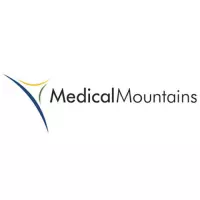Tuttlingen - At the end of the PFAS consultation process, ECHA has counted more than 5,600 comments from over 4,400 organizations, companies and individuals: Now it is the turn of the specialist committees to examine the submissions. A final report should be submitted “as quickly as possible”.
According to ECHA, the majority of submissions in the consultation process came from Sweden (1,369), followed by Germany (1,298) and Japan (938). Companies contributed the most at 58.7 percent, while 27.3 percent came from individuals. Organizations accounted for 9.8 percent of all comments.
What is the next step? “The comments will be considered by ECHA’s Scientific Committees for Risk Assessment (RAC) and Socio-economic Analysis (SEAC),” the chemicals agency said on its website. “Those who provide relevant, evidence-based information will be taken into account in the opinion-forming process.” Denmark, Germany, the Netherlands, Norway and Sweden also explored input from the consultation with a view to potentially updating the original proposal.
The committees now developed their “independent, scientific opinions in a series of meetings”. The standard procedure under REACH is for the RAC to issue an opinion on whether the proposed restriction is appropriate to reduce the risk to human health or the environment within nine months of publication of the dossier. At the same time, SEAC will prepare an opinion on the socio-economic impact of the proposed restrictions, taking into account the comments and socio-economic analysis submitted by interested parties. All comments on SEAC's draft opinion must be submitted within 60 days of its publication. SEAC will adopt its final opinion within 12 months of the opening of the first consultation on the restriction proposal, taking into account the comments.
ECHA will “submit the final opinions to the European Commission as quickly as possible” while “ensuring appropriate scrutiny by the scientific committees”. Once the committees have adopted their opinions, they will be communicated to the public. The Commission will then decide on the restriction together with the EU member states.
- MedicalMountains GmbH will continue to monitor developments and remain in discussions with the industry on the subject of PFAS.
The document “MedicalMountains GmbH's positions on the proposal for a restriction of per- and polyfluorinated alkyl substances (PFAS)” can be obtained free of charge in file version 2.0 under this link.





